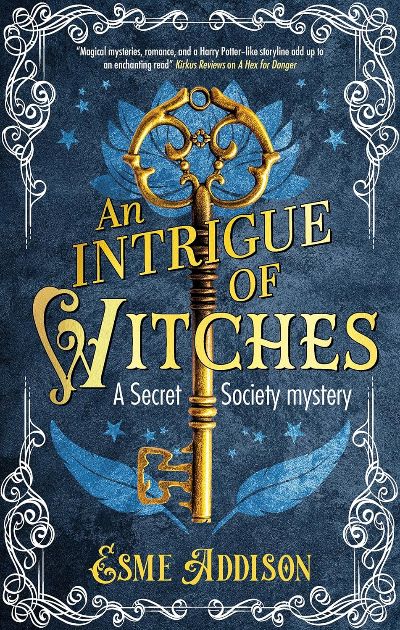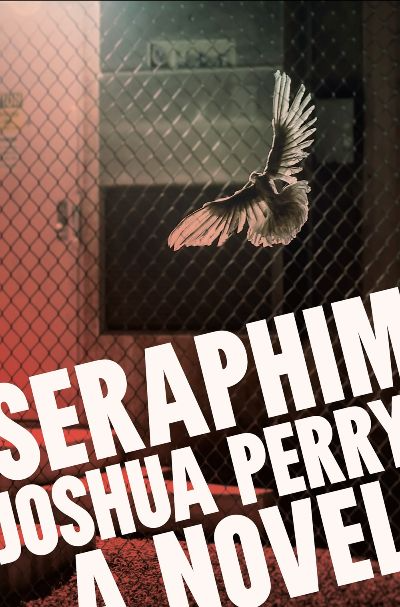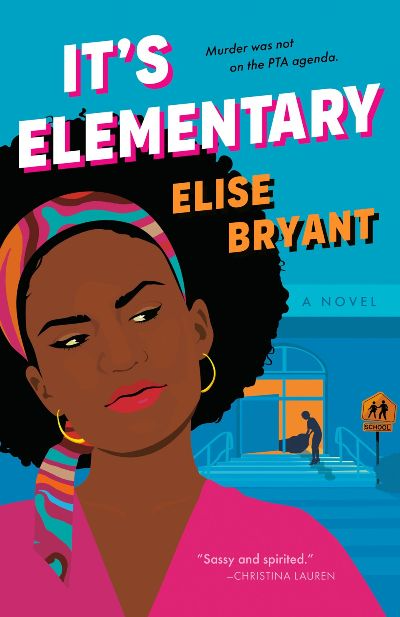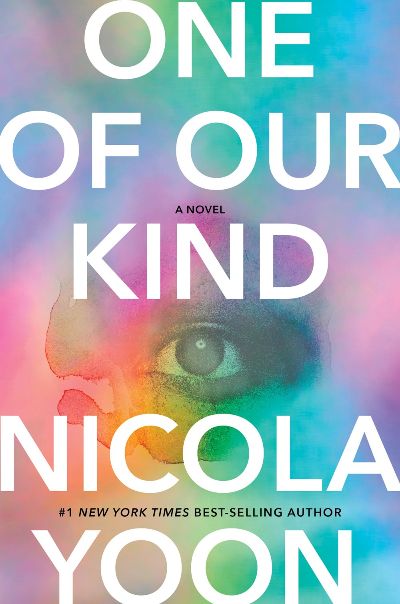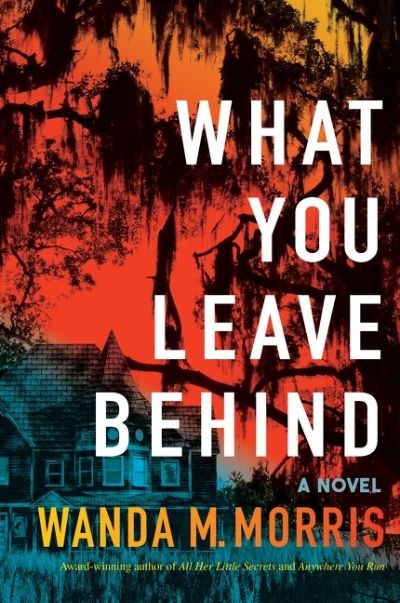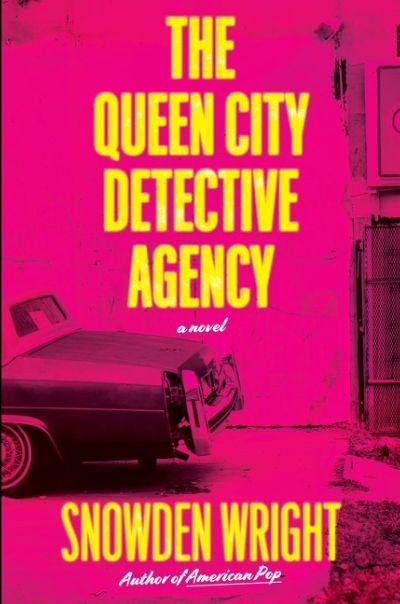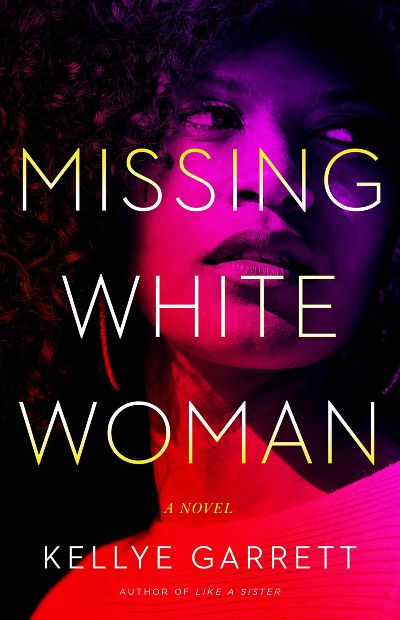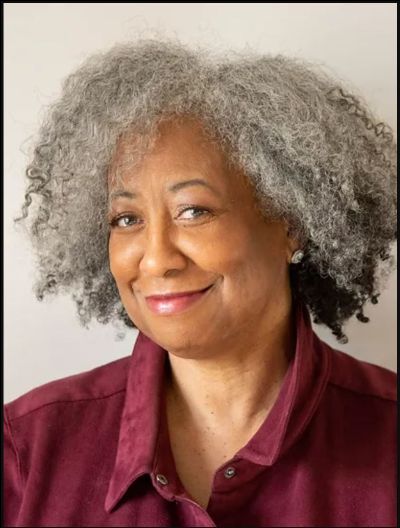Calla, 25, has carried her family forever—they’re a “collectively forked tongue, sharp and dangerous”—and their endless needs drag her from the better life she was building. She’s now a fretful, parenting-advice-reading mom to her lovable but wayward younger brother Jamie, 16. Their father is dead; their mean, drunken mother took off; and middle child, Dre, is no help, despite swearing that if Calla became Jamie’s guardian, he’d be there for them. “Redneck Amish Mormons would be better guardians than you,” says Jamie, in one of the book’s many grimly funny moments, and the pinnacle of his unthinking rejection is driving to a Black Lives Matter protest with a group of friends—when he promised Calla he’d stay home—to give the protesters some illicit help. Jamie has been experiencing bizarre moments, such as when his hand dissolves into a girl’s face and he can feel her insides; more of the same happens at the protest, but no excuses can help Jamie with the law when he’s Black and the protest gets violent. Things are simultaneously going monumentally wrong for Dre, who now must also dodge the police; Calla is once again on the hook to save her brothers from themselves. This is where fear and body horror meet hope and love, the siblings’ lengthy battle for one another stretching their emotional and physical limits and revealing their true selves in all their fury and strength. Debut author Viel really brings the horror here, it’s not for the squeamish at all, but those who can brave this epic fight will be rewarded with a story to remember.
African American & Black
Addison, author of the Enchanted Bay series, brings her lively voice to a series debut featuring a heroine to remember. Historian Sidney Taylor, a young Black woman, is on furlough from the Smithsonian when she gets a mysterious offer to go on a quest in her hometown, Robbinsville, VA, the heart of which is the Josiah Willoughby museum. Sidney’s parents are rich—her father is the Speaker of the House of Representatives—but they believe in the young woman making her own way, so when she receives a wax-sealed envelope with an invitation inside to find something historically significant in Robbinsville, and the prize is a million dollars, she’s in. There’s danger and intrigue in store though, with Sidney receiving threatening messages and increasing pressure on the museum to give in to virtual reality as the future, a government program that seems more sinister by the minute, headed as it is by a woman who will remind readers of scary real-life tech-exec Elizabeth Holmes. The small-town scene, loving family members, and history-tinged puzzles keep the pages turning fast; there are plenty of real historical details packed in, too, surrounding a long-running conspiracy about the U.S. presidents. A winning series starter.
Every book has words, is comprised of words, but this book is about words. The ones that 16-year-old Robert Johnson used when his charter school teachers, who treat optimism as a kind of hygiene, told him he should confess to the murder of Lillie Scott, a hero of the rebuilding of New Orleans, who hired at her restaurant those down on their luck. The words the boy can’t or won’t say about what really happened, which barely matters anyway since the system will drag him in now or later, formed as it is of “strange empty words in the shape of language but without any meaning.” And the words that are unsaid as Lillie “[lies] down in the street so noiselessly, slow like a sheet in the breeze flutters to the ground.” Shoulder to the wheel of all this is Ben Alder, a former rabbinical student and son of a linguist, and his dude of dudes, Grand Old Dude of York, Mayor Van Dude of Dudetown, Boris Pasternak. These public defenders ask for every case involving a child, and Ben becomes Robert’s lawyer. All the boy wants is to talk to his dad. But Ben doesn’t tell him that he’s also representing the father, who, unknown to the boy, is in the same jail. Ben has “no questions that are small enough for the courtroom,” but still wrangles his fear and his clients through the morass to a satisfying outcome, one that will leave readers with large questions of their own, mainly about this country’s treatment of Black boys. Debut novelist Perry, a former New Orleans public defender, has wonderfully distilled a world of hurt onto the page.
Mavis is one busy single mom. Pearl, her seven-year-old, is smart, funny, and chatty. Her ex, who tries to be a good dad, is a musician who is regularly on tour across the country. The non-profit Mavis works for has the bad habit of skipping her over for promotions. And Trish, the incredibly bossy head of the PTA—when will a house fall on her?—tricks Mavis, as one of only a handful of Black moms at the school, to head its DEI committee. “DEI means diversity, equity, and inclusion, sure,” Mavis says. “But it also means free labor to be given willingly to fix problems we didn’t create.” The novel is barely underway when the new school principal suddenly disappears while Mavis, while walking her dog late at night, passes the school, only to see Trish loading up her car with cleaning supplies and heavy plastic bags…filled with the remains of Principal Smith? Joining forces with Jack, the “superhot” school psychologist, Mavis sets off to find the lost principal. Beautifully written and well-paced, this delightful novel explores the many friends and family who surround Mavis, the struggles she experiences, and the love that flows throughout. Elise Bryant is the NAACP Image Award-nominated author of the young adult novels Happily Ever Afters, One True Loves, and Reggie and Delilah’s Year of Falling.
In many ways, Kingston and Jasmyne Williams are living their dream life. Their little boy, Kamau, is thriving. They have another baby on the way. And Kingston, or King, is making oodles of money in finance. But King is eager for a next step: moving them to Liberty, a controversial suburban Los Angeles community of very, very rich Black people that comes with all the trappings. A sumptuous spa—sorry, wellness center. Lavish homes with three living rooms each (one for everyday, one for company, and a den, of course). And an excellent school for Kamau where every teacher is Black and they won’t have to worry about him fitting in. From the moment she reluctantly agrees to this transformation of their lives, Jasmyn is nervous about abandoning her community and her belief in giving other Black people a hand up. And she’s right: Liberty turns out to be one sinister place, in ways readers will never guess and that will keep them on edge right up to the last gasp of surprise. Yoon’s first adult novel has some of the hallmarks of her YA background: a character who feels like it’s her against the world, a shifting sense of who can be trusted, and a feeling of not fitting in. This will be a great crossunder read for young adults as well as a hit with fans of Zakiya Dalila Harris’s The Other Black Girl.
A beautifully balanced novel that includes a foray into the world of the Gullah-Geechee people, the experience of grief, and the uncovering of a land grab, all wrapped up in an edge-of-the-seat thriller. Deena Wood is back in her hometown in coastal South Carolina. A 40-something lawyer, she had been living in Atlanta until her husband divorced her, she lost a court case—and her job—and her beloved mother died. It’s time to start over, which means moving in with Dad and his new wife. To unwind, Deena likes to drive along the coast, and one day she comes across a cantankerous, elderly African American man who states that he is fighting to keep his valuable land. Suspicious of Deena’s motives—has she been sent to make him move?—he chases her off his property. But Deena can’t forget him, and when she returns a week later, she discovers he’s gone, with no trace left behind. Deena becomes obsessed, and sets out on a fascinating but deadly search that takes her deep within her community as she goes after a conspiracy that has been exploiting the rural poor for decades, right up to today. Morris (All Her Little Secrets) has written a perfect novel for a book group, and it’s sure to be one of the best books of 2024.
On New Year’s Day 1985, as the countdown to Ronald Reagan’s second presidential inauguration begins, Turnip Coogan, in custody for the murder of real estate developer Randall Hubbard, falls from the roof of the courthouse in downtown Meridian, Mississippi. It may be morning in the rest of America, but that Reaganite optimism has bypassed the state’s “Queen City,” where strip malls developed by the late Hubbard have “sucked the life out of the city’s downtown” and its convenient location between New Orleans and Atlanta has made Meridian “a vital pit stop in the loosely affiliated crime belt of the Deep South.” Knowing of her son’s connection to the notorious Dixie Mafia, Lenora Coogan is convinced that his death was neither an accident nor a suicide and hires Black cop-turned-private investigator Clementine Baldwin and her white partner, Dixon Hicks, to find the “sons of bitches who killed him.” Complicating the investigation is the still-jailed Odette Hubbard, who had recruited Turnip to kill her husband and then canceled the hit job. She wants Clem and Dixon to identify the real killer, a request that puts a target on Clem’s back. Jim Crow laws may be a thing of the past, but Clem still must battle old-fashioned racism as she goes after the city’s powerbrokers. Wright’s (American Pop) Southern noir introduces a compelling, complex, bourbon-loving sleuth who both loathes and loves her hometown. Her budding friendship with Dixon will have readers anticipating their next crime-solving adventure.
When cousins Joshua and Nate view Joshua’s brother lying in the morgue, having been beaten, they swear that Darius won’t be “just another dead black boy.” Two years later, grief has solidified into a plan: Nate, Joshua, and friends Rachel and Isiah have taken Scott York, a white man, captive. They confront him about when his grandfather and three other white men threw a Black man off a bridge to his death. “Pawpaw? Impossible,” is the reaction, but the verdict is the same: Scott must each week deposit $311.54 into an account the group provides. They’re enacting a reparations program, and Scott’s nonchalance about the crime and incredulousness that the group would care about the dead man spur them on. Tensions caused by colorism and racial differences—Rachel is Black but often taken for Latina and Isiah is Korean American–and disagreements about whom to target introduce interesting ambiguities as the audacious plan unfolds and leads to mayhem. Mayfield’s foreword explains that he was inspired by Kimberly Jones’s video How Can We Win?. Readers can learn more about reparations and the history that makes them necessary by reading Ta-Nehisi Coates’sThe Case for Reparations and Bryan Stevenson’s (an author and activist who’s mentioned in the book) searing Just Mercy. A compelling and exciting debut.
This is one wild, suspense-driven tale, equally rich in characterization and plot. Breanna is on a mini-vacation with her new boyfriend, Ty, staying in a beautiful brownstone in Jersey City while touring Manhattan. Ty’s thought of everything, and the long weekend is 95 percent perfect, except for that five percent when Ty won’t stop with the work calls. But when Bree wakes up on their final morning, she can’t find Ty anywhere. What she does discover, strewn in the foyer, is the bloody corpse of a young woman that turns out to be Janelle, who has been missing for days. From here, things really take off, with Bree’s best friend—they’ve been estranged since college—arriving on the scene (she’s a take-charge criminal attorney), while Billie, a super-successful makeup influencer, rallies her thousands of followers into seeking #Justice4Janelle. Garrett does a great job of tracking the racism Bree experiences, from the neighbors’ microaggressions to the stereotypes purported about Ty to the national frenzy that only a white woman’s disappearance could generate (and thus the book’s title). A great cast, a wide-reaching narrative, and a resolution that will leave readers ruminating for days. Can’t wait to introduce this to a book group
This new title from Delia Pitts—author of the Ross Agency series—offers everything that fans of detective fiction are looking for. Vandy Myrick, a former cop—she joined the force to impress her cop dad—is now a detective in Queenstown, New Jersey, her hometown, where she sets up a firm with BFF and trial lawyer Elissa. They’re two Black women in a town where racism, “casual like flip flops down the Jersey shore,” is always bubbling right under the surface. Vandy’s work is mainly divorce cases, and when she gets a call from the Mayor’s nephew—Queenstown royalty—asking her to track his wife, she just assumes that one more “Q-Town” marriage has hit the rocks. Except this gig quickly spins out of control when Vandy walks in on a double homicide, one that the powers that be are all too eager to shut down. Pitts has written a strong narrative that ricochets from Vandy’s tragic past to her gutsy present, keeping readers totally engaged to the very last page…and eager for more. Fans of Robyn Gigl’s thrillers will enjoy visiting New Jersey with Vandy.


